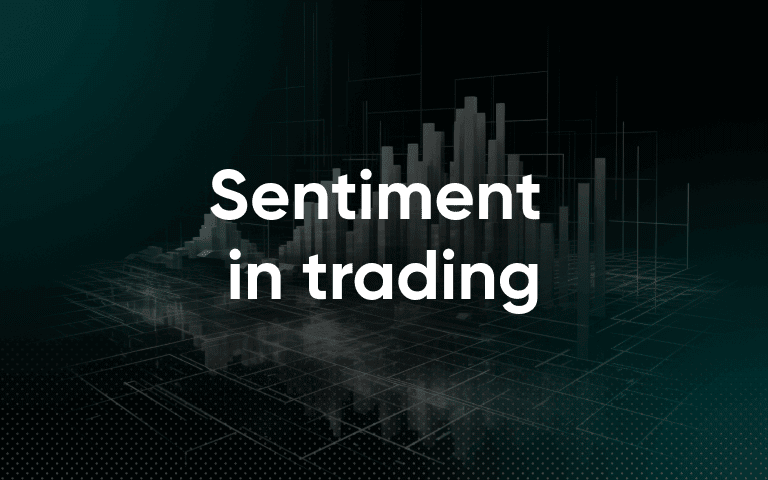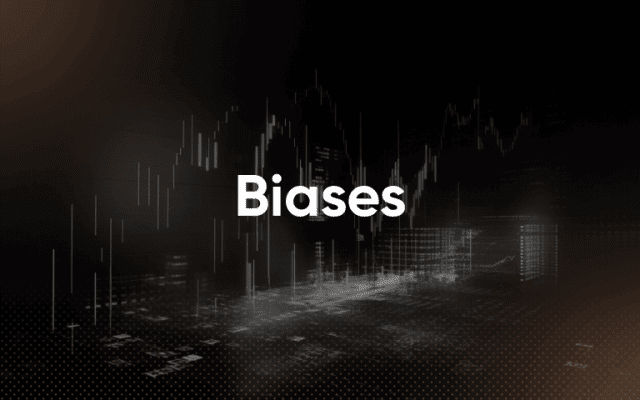Emotions in trading: a complete guide

Understanding how emotions can impact your trading decisions is one of the most important lessons a trader can learn.
Read on to find out how emotions such as fear and greed can affect your trading activities, and how to control these emotions, so you can make more reasoned decisions in the markets.
Emotions in trading
How do emotions affect trading?
Trading can be an emotionally-charged experience. It’s easy to become overwhelmed by feelings of excitement, fear and greed – any of which can have a negative impact on your decision-making.
Here are some of the things that can be triggered if you base your trading decisions on emotions rather than objective market analysis.
-
Cognitive biases: overconfidence and excessive risk-taking, or conversely, underconfidence and hesitancy, are just a handful of the cognitive biases that can be triggered by emotional trading.
-
Impulsive decision-making: this can arise from a lack of discipline and oversight, leaving traders potentially exposed to greater losses.
-
Loss aversion: this can cause traders to become fixated on short-term losses and avoid trading altogether.
Common emotions in trading
While the emotional spectrum of each trader is unique, there are 14 emotions most traders typically experience. These may come in cycles, from excitement and euphoria, to fear and panic, and then despondency and depression.
Let’s take a look at some of the key emotions in trading in more detail.
-
Euphoria: if feelings of intense excitement are triggered by a profitable trade or winning streak, this could distort your perception of the potential for significant gains. In this state, you could become more self-assured and fall prey to the overconfidence bias, taking more risk than you normally would.
-
Fear: in trading, fear can be triggered by unexpected market volatility. It could cause you to base your decisions on anxious thoughts rather than sound analysis. This could lead to a panic-driven sell-off, where you close your positions early, or not open positions at all.
-
Despondency: this can be caused by a significant loss or series of losses. In this state, you may become fixated on failures and lose self-belief, become more prone to the loss-aversion bias, or give up trading altogether.
How to control emotions in trading
There are no one-size-fits-all lessons on how to control emotions in trading, as every person is unique. However, there are steps you can take to better understand, and mitigate the negative effects that emotions in trading could have on your decisions in the markets.
-
Practice mindfulness: practising mindfulness can help you cultivate an increased awareness of your thoughts and emotions. This could make you more likely to trade based on rational decisions as opposed to emotions.
-
Try journaling: documenting your trading decisions, strategies, and emotional states could help you evaluate your performance, identify patterns, and rectify emotional biases going forwards.
-
Engage in positive self-talk: consciously replacing negative thought patterns with constructive, affirming statements could help you boost your confidence, maintain composure, and minimise the impact of emotional biases in decision-making.
-
Take breaks: it may sound simple, but remembering to take breaks could help you step back, recalibrate your focus, and gain some perspective on how your trades are unfolding amidst market events.
-
Seek support: exchanging insights, discussing strategies, and sharing experiences with your fellow traders can help to bolster your emotional resilience.
Learn how the Fear and Greed Index works, what it measures, and how it can help you better understand market behavior.
Want to learn more about trading psychology?
Take a look at some of our other comprehensive guides.

Effects in trading

Fallacies in trading

Biases in trading
Frequently asked questions
Why do emotions mess with your trading?
The significance of emotions in trading lies in their profound influence on a trader’s ability to make sound, rational decisions. Emotions could cloud judgement, skew perceptions, and lead to biases that ultimately result in suboptimal choices. Recognising and managing emotions is therefore crucial in maintaining a clear, objective perspective, which is essential for achieving long-term success in the financial markets.
What are some common emotions that traders experience?
Traders can experience a range of emotions when trading, including euphoria, which can lead to overconfidence and excessive risk-taking; fear, which can result in fixation on short-term losses, panic-driven sell-offs, or inaction due to uncertainty; and despondency, which can cause traders to fixate on failures, become more prone to loss-aversion bias, or give up trading altogether.
How do I control my emotions when trading?
Keeping a trading journal, using risk-management tools, and taking breaks when trading can help you monitor and manage your emotions effectively when trading.
What is the fear and greed index?
The fear and greed index is a sentiment barometer for traders seeking to understand the emotional undercurrents driving the stock market. It operates on a scale of 0 (extreme fear) to 100 (extreme greed), with 50 being the neutral zone. Broadly, it can be used to gauge investor sentiment by assessing risk-taking or risk-averse behaviours in the stock market.
What influences the fear and greed index?
Factors influencing the stock market fear and greed index can include stock market trends, economic indicators, global political climate, and market sentiment.
How do I use the fear and greed index?
Traders can use the fear and greed index to help identify trends, time entry and exit points, and assess overall risk appetite in the markets.
What’s the difference between fear and greed index and the VIX?
The fear and greed index assesses overall market sentiment, alternating between fear and greed based on stock market behaviours. In contrast, the VIX specifically measures expected market volatility. The fear and greed index gives a broader sentiment picture, while the VIX focuses on volatility expectations.
What’s the difference between fear and greed index and S&P 500?
The fear and greed index is a market sentiment indicator that measures investor emotions, while the S&P 500 is a stock market index tracking the performance of 500 large companies listed on US stock exchanges.
How do fear and greed impact trading decisions?
Fear can lead to impulsive decisions or inaction, while greed could result in excessive risk-taking in the markets.
What strategies can help manage fear in trading?
Setting clear stop-loss* orders, diversifying investments, and having a well-defined trading strategy can help to mitigate excessive fear when trading. It’s worth noting, however, that feeling fearful is occasionally warranted when trading as it serves as a natural response to the inherent risks, prompting you to take caution and make informed decisions to protect your capital.
*Not all stop-losses are guaranteed.